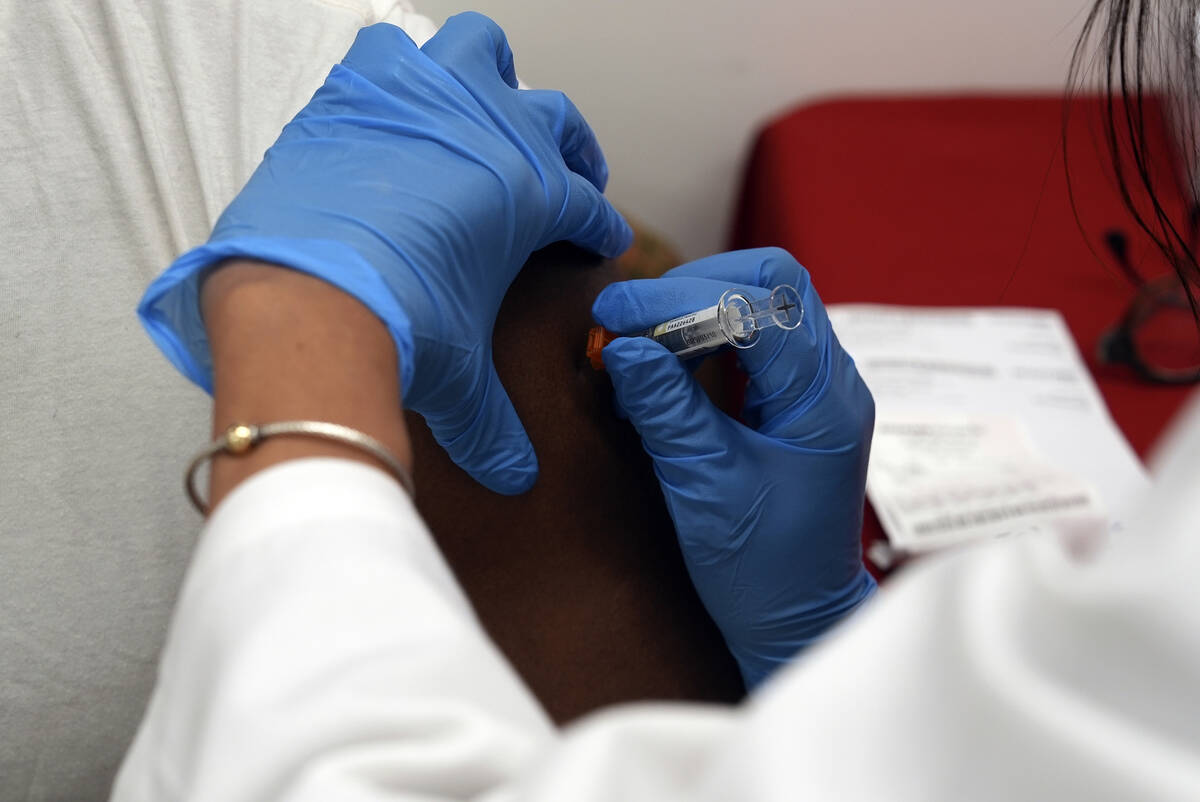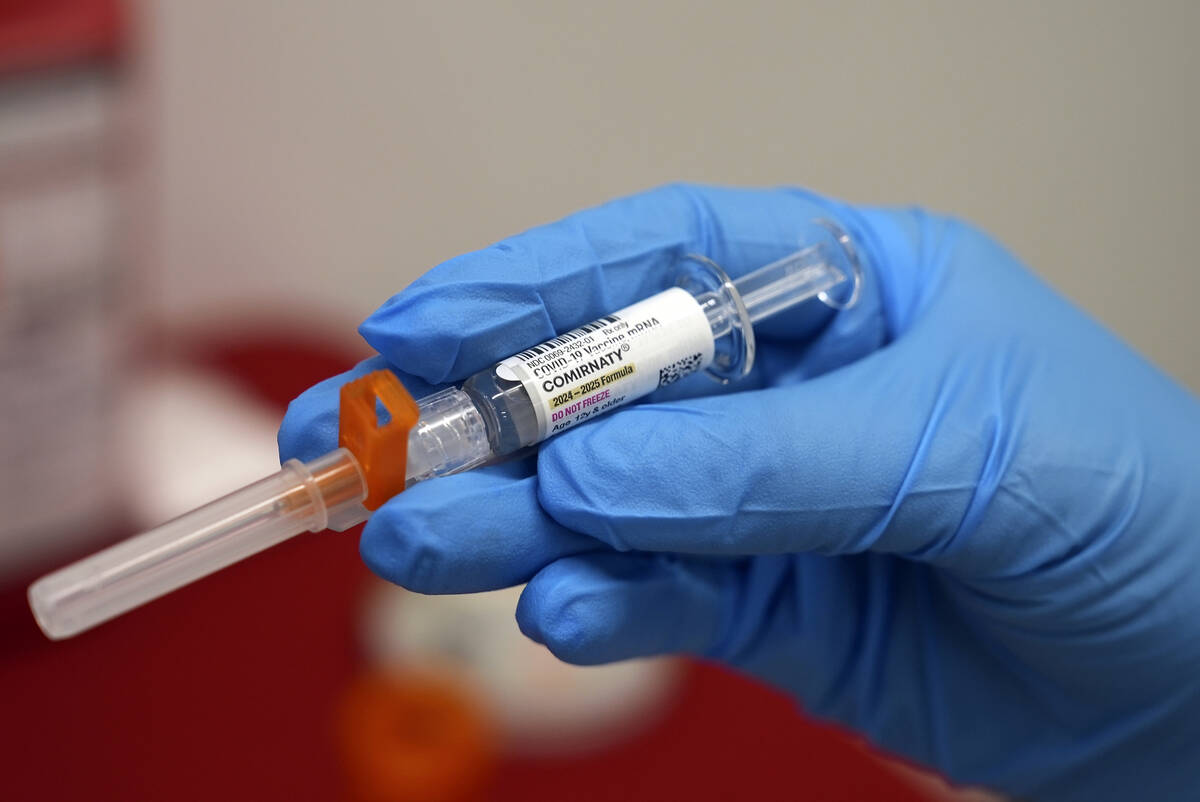Why you should wait on new COVID vaccine booster
Yes, older Americans should get yet another COVID shot — but if you have already gotten the latest version, there’s no rush.
The Centers for Disease Control and Prevention recently announced that people 65 and older or who are immunocompromised need a second dose of the new vaccine released in September.
But you should wait six months after the first dose. This means March is the earliest you would be eligible.
Why is the CDC promoting two doses, when the first one is still being rolled out?
“It’s predictive,” based on previous years’ infection trends, said Dr. Jeffrey Silvers, medical director of pharmacy and infection control for Sutter Health. This is the second year in a row that the CDC has made a biannual recommendation.
Scientists now know that a duo of doses — every year — is needed to maintain immunity and keep pace with the virus’ mutational high jinks, said Silvers, who serves as an adviser to the California Immunization Coalition, a nonprofit public-private partnership that seeks to reduce rates of infectious disease.
Annual autumn-and-spring rollouts will mark one of the ways that we’re permanently incorporating the COVID virus into our daily lives.
Meanwhile, if you’ve been delaying the first dose of the updated 2024-25 COVID vaccine, now’s the time. Last year, only 40 percent of older adults got one dose of a revised vaccine. Willingness to get two doses was even lower: 8.9 percent of older adults and 5.4 percent of immunocompromised adults got both doses.
The complexity of the schedule, and the frequent changes in vaccine recommendations, has created confusion and reduced uptake, according to the CDC Advisory Committee on Immunization Practices. To be sure, it’s hard to muster enthusiasm for six-month inoculations. But formalizing a two-dose fall-and-spring schedule is intended to help.
The goal is to build a vaccine regimen that protects the most vulnerable populations for the greatest length of time. It’s an update to recommendations last summer, when no additional doses for older adults were advised.
If you’re like a lot of us, you’ve probably lost track of how many times you’ve been vaccinated.
It’s time to stop counting, experts say. What matters, instead, is how recently you got a shot. Protection against severe COVID, requiring emergency room care or hospitalization, fades within four to six months.
Before you make your appointment, here are some things to know.
We don’t need two doses of the flu vaccine. Why two COVID doses, every year? Some diseases require only one vaccine in an entire lifetime.
“Stable” viruses that don’t replicate quickly need fewer boosters because there is lasting immunity. For instance, we need a tetanus shot only once every 10 years. Measles, smallpox and polio need one shot for a lifetime.
By contrast, flu and COVID viruses replicate quickly. This means they have many chances to produce more mutations, which create new variants that evade immune protection.
The flu virus is very seasonal. (If it stuck around, it would also require two shots.)
COVID circulates year-round, with peaks in winter and late summer. So, we need more frequent protection.
For immunocompromised people, are two doses enough?
Not necessarily. CDC experts suggest additional doses — three, even more — of the new vaccine in people who are moderately to severely immunocompromised, in consultation with their doctor.
However, they advised waiting two months between each shot, depending on the patient’s circumstances.
Will the second dose be the same as the dose that was released in September?
Yes. But it’s different from the 2023-24 vaccine.
How is the 2024-25 vaccine different from last year’s vaccine?
The current vaccine more closely targets the JN.1 lineage of the omicron variant of the virus. The vaccine introduced last fall targeted the XBB.1.5 strain. After last fall’s rollout of that updated vaccine, JN.1 surfaced with more than 30 new mutations, which worried experts.
Can I mix and match the Pfizer and Moderna vaccines?
It is not recommended.
From year to year, it’s fine to get vaccines from different manufacturers. But when getting the second dose of a two-dose series, experts at the Oct. 24 meeting of the CDC Advisory Committee on Immunization Practices recommended sticking with the same manufacturer. A dose from a different manufacturer may be administered if the same vaccine isn’t available, or if the previous manufacturer is unknown.
I was sick with COVID during the summer wave. Am I eligible for the 2024-2025 vaccine?
Yes, but wait three months after your illness. You still have some protection, so a vaccine isn’t needed.
Why isn’t a second dose recommended for younger people?
A second dose won’t hurt a young person and will be protective. But the CDC is most concerned about hospitalization and deaths among seniors and the immunocompromised because their immunity is impaired.
When we’re young, our bodies have a well-tuned network of protection against foreign invaders such as the COVID virus. The thymus, which produces infection-fighting T cells, reaches its peak size at puberty and then steadily shrinks.
In older people, there is a decline in the number, activity and diversity of T cells, a process scientists dub “immunosenescence.”
By age 50, our T cell production is less than 10 percent of its peak, so it’s harder for an older person to clear the virus from their blood. Older people are also more likely to experience chronic inflammation in the lungs and other organs.
And younger people tend to bounce back from illness. When sickened, “younger people who are otherwise healthy, tend to be able to weather the storm a little better,” Silvers said.
Are we destined for a lifetime of constantly updated COVID vaccines?
Not if research is successful. Federally funded scientific teams are working to develop a “universal” vaccine that would confer immunity to many viral variants — even versions that don’t exist yet. They hope to do this by targeting a region of the virus that stays the same, even as it mutates.
Such targets are usually those that are least accessible to the immune system. This poses a significant challenge to vaccine researchers. But with recent progress in vaccine technology, researchers think that universal vaccines are closer to reality than ever before.














